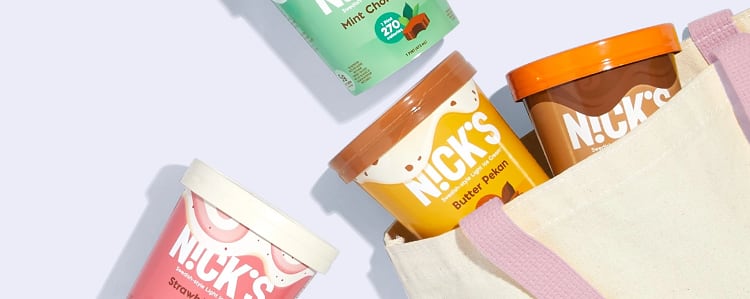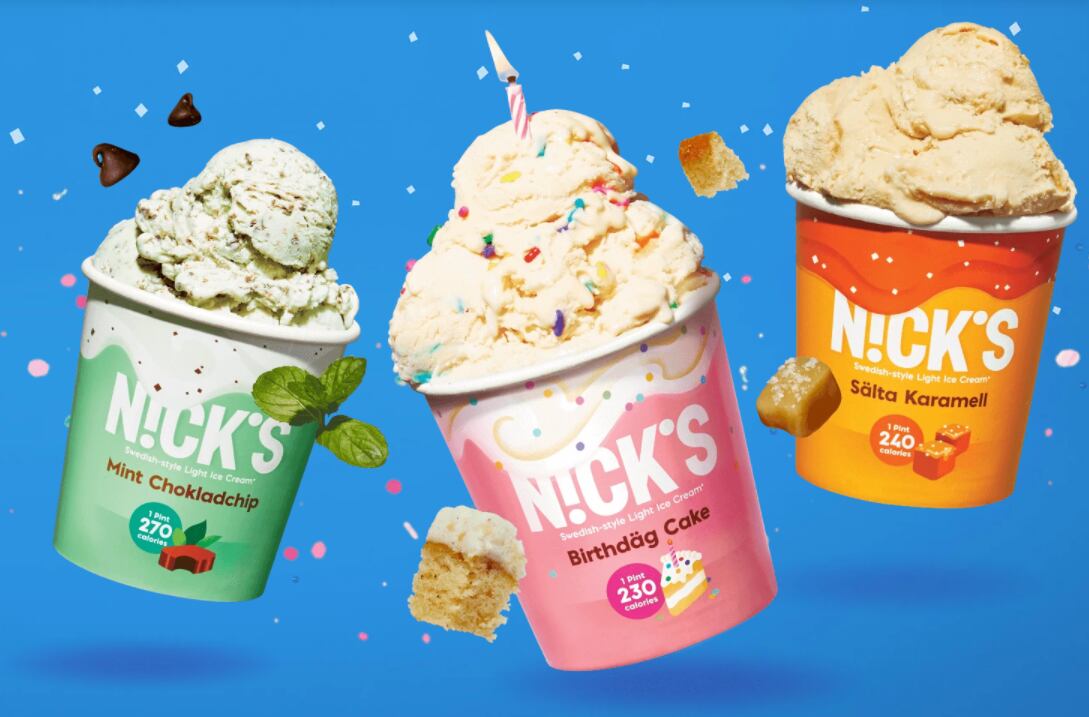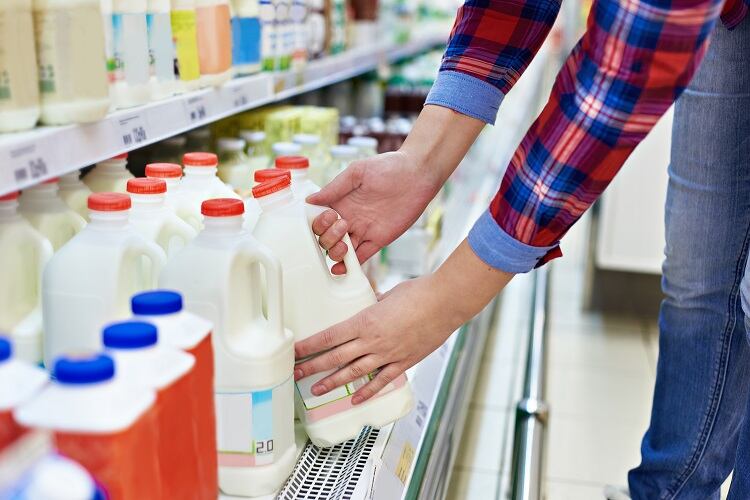Swedish brand Nick’s, owned by food tech Lub Foods, is known for its commitment to fat- and sugar-reduction in ice cream.
The company’s low-calorie offerings – originally launched in Sweden and now available across Europe and the US – were first developed with blood sugar levels in mind. Type 2 diabetes, founder Niclas Luthman explained, runs in the family.
Luthman’s keen interest in blood glucose stability came from a doctor’s diagnosis. Having learnt he was prediabetic, Luthman turned to food – rather than insulin – as medicine. “Type 2 diabetes is completely preventable. You don’t even have to develop diabetes; all you have to do is change your diet. And I did,” he told FoodNavigator.
The prevalence of diabetes is increasing around the world. Globally, high blood glucose is responsible for about 3.4m deaths per year. In Europe, about 60m people have diabetes, which the World Health Organization (WHO) mostly puts down to increases in overweight and obesity, unhealthy diet and physical inactivity.
“I wanted an indulgent product that doesn’t move your blood sugar at all, or does a very, very nominal amount,” Luthman continued. And here, Nick’s has succeeded.
The complexity of ice cream
Why did Nick’s target ice cream? The answer to this is ‘very, very easy’, said Luthman: “Because it’s the hardest to make.”
In a nutshell, ice cream is made from a complex structure of proteins, fat globules, air bubbles, liquid water, and solid water. As soon as sugar is cut from the product, its melting and crystallisation properties are compromised.
By leveraging the ‘toolbox’ of sugar reduction solutions available, Nick’s says it is able to achieve a more desirable taste and mouthfeel than most.
Nick’s is not the only low-sugar, low-calorie ice cream brand on the market. Yet for Luthman, the mouthfeel of Nick's' competition misses the mark. “Some replace sugar with a little bit of sugar and erythritol, then take out a lot of fats – which reduces calories but compromises mouthfeel. Others drench their product in dairy fats, for a slightly better, but still compromised mouthfeel – but with much higher calories,” we were told.
Nick’s, on the other hand, says it ‘looks at the whole product’ and ‘takes into consideration how all ingredients interact’: the fats, the proteins and whatever ingredients are needed to replace sugar in that particular formulation.

To further boost mouthfeel, while cutting calories, the company’s US arm has secured a unique ingredient for its toolbox: an alternative fat technology with 92% fewer calories than its conventional counterpart.
Alternative fat technology EPG
The novel technology is patented by US company Epogee. Marketed as EPG (esterified propoxylated glycerol), the plant-based oil is made by splitting rapeseed oil into glycerin and fatty acid. A food-grade link is then inserted, before the glycerin and fatty acid is reconnected.
This restructure means that almost none of it is absorbed by the body. So whereas 1g of fat contains 9kcal, 1g of EPG contains just 0.7kcal.
Nick’s is the only company to have partnered with Epogee in the ice-cream space. It was also this partnership that prompted a move from Sweden to the US. “Once I knew we had EPG in our formulation, I knew I had to move here,” Luthman explained from his Californian base.
“We have been able to kick out 75% of the calories from normal ice cream because we can use as much fat as we like, and that fat does not contribute any significant calories.”
The US Food and Drug Administration (FDA) has granted EPG Generally Recognized As Safe (GRAS) status for a number of food applications, including confectionery, baked goods, and frozen dairy.
This means that state-side, Nick’s is able to sell a range of 16 ice cream flavours – made using EPG and cow’s milk – that contain between 220-360kcal per pint.
The animal-free solution: Perfect Day protein
Having first focused on carbohydrates, and then fats, Nick’s turned its attention to proteins – with human and planetary health in mind.
Luthman believes western populations will be forced to move towards vegan proteins to feed growing populations.
While the founder is upfront about his love for dairy, he admits current production methods are inefficient. “If you look at a cow as a machine for producing food, it’s not very efficient. It’s a machine that uses up too many resources, such as water and land, and produces a lot of CO₂. Plus, you get a lot of stuff that you don’t want in it, like antibiotics.”
To start with, Nick’s investigated plant-based dairy alternatives. “We did more than 200 tests with vegan proteins, but we couldn’t get around the off-notes,” Luthman recalled. “If you use oats, the final product tastes like oats. If you use coconut, it tastes like coconut. Pea tastes like pea – so you can’t use very much of the protein.”
One solution to this issue lies in precision fermentation technology, whereby alternative proteins are grown in bioreactors with ‘a fraction of the footprint’.
Perfect Day is one such company playing in the precision fermentation space. The California-headquartered start-up adds DNA sequences to microbes, which then go on to produce the proteins and fats found in milk.
“When I heard about Perfect Day and their production of whey protein Beta-lactoglobulin, we knew it would work,” said Nick’s founder. And after just two months, during which Nick’s conducted 57 trials, it did. “Let’s say it wasn’t as uncomplicated as we first thought – you definitely need to know your science when working with these kinds of novel ingredients,” Luthman continued.
In the US, where Perfect Day’s Beta-lactoglobulin has been FDA-approved since May 2019, Nick’s sells three lactose-free vegan ice cream alternatives – Choklad Choklad, Swedish Mint Chip, and Karamell Swirl – ranging from 280-400kcal per pint.
Nick’s is preparing to add an additional four flavours to the range before the end by the end of March.

During 2020, Nick’s launched the dairy line across the US at a list price comparable to Ben & Jerry’s. Online, the brand sells for around $11 per pint, including the cost for dry ice and shipping. Although this is considerably higher than normal retail, “fans that want their favourite flavours are willing to accept it”, said the founder.
The vegan flavours are in line with dairy pricing online, but a dollar more in retail, he continued.
“The product we make is completely unique. This is food innovation for real. If we’re not charging extra for that, we’re crazy.”
Selling ‘the holy grail of vegan and calorie reduction’ in Europe
Nick’s acknowledges that with Epogee’s EPG and Perfect Day’s whey protein, it has a toolbox with ingredients ‘not accessible to every other company’. “It is quite a luxury,” the founder added.
“With Perfect Day we get the holy grail of vegan. And Epogee is the holy grail of calorie reduction.”
However, this ‘holy grail’ cannot yet be commercialised in Europe. Perfect Day and Epogee are currently seeking regulatory approval with the European Food Safety Authority (EFSA) – and Nick’s is waiting with bated breath.
“Both Perfect Day and Epogee are driving approval processes. It would be very lucky for me if they got approved at the same time,” said Luthman.
Admitting that he favours Nick’s US recipes over its European versions, Luthman said: "The European ice cream is great, but we are constantly looking for innovation to make it better. If Epogee and Perfect Day are approved, we will change our formula, but we are also driving a number of other avenues to improve the experience.”




